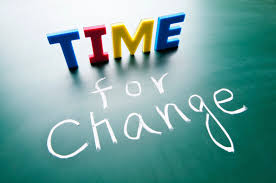October 2017 - A third of coffees change. New product and pricing. Rebuilding yet again
Date Posted:3 October 2017
“There is only one day left, always starting over; it is given to us at dawn and taken away from us at dusk.” — Jean-Paul Sartre

At a glance....
Why are some coffees tasting different ? - well, almost 1/3 of our coffees have rolled over in new arrivals during the last 6 weeks. This means there are plenty of new lots, a bunch of changes and of course all of our blends have been re-engineered, tweaked and tuned.
In a pricing and strategy update, we drop a hint on the introduction of new products on the horizon.
For our opinion piece this month, we discuss the constant changes faced in the world of coffee and why we ourselves are pushing through incredible changes within our own domain. The ATO believes you must achieve an effective life of 20 years from roasting systems, but we dismantle and rebuild our entire infrastructure every 2 years, literally 10x faster than the expected industry life cycle.

Product and pricing strategy update
We do our best to hold prices down as we know too well that competition from all sectors of the market subject our offerings to constant threat.
These threats come from all segments, whether it's the convenience of the supermarket and their lower-grade, relatively stale coffee-based products, or the new hit & miss local roaster on his "L plates" desperately keen to add customers with cheeky marketing and infectious enthusiasm.
Generally speaking, roasted coffee is not hard to source in Australia. Yes, the freshness, quality and value change considerably across suppliers and areas, but inevitably, the end consumer wants what we define as the magic 3 - a delicious experience, simple convenience and reasonable value.
Fail on any one of those magic 3 and you don't get a second chance.
Consumers are often confused by choice and our natural human instinct defaults to equating price with perceived quality - however, with roasted coffee you simply can't rely upon price to evaluate the suitability or value of any given finished product. An example is that Kenyan coffees can be literally twice the price of a Colombian - does that mean it's twice as nice ?
Taste is king and it's incredibly hard to trust when you can't try beforehand.
Many other coffee suppliers use visibility in the cafe segment as their brand building strategy, but we caution you to understand that what is experienced at the "branded" cafe may less likely to match any in-home DIY result.
There are a number of reasons why, but one of the biggest is that some suppliers deploy a rather questionable approach of using cafes to build up their reputation and "halo", supplying these high profile cafes with a heavily customized specialty product yet flogging entirely different grades of coffee to their consumers - it's marketing speak for the deceptive practice of "bait and switch". This is not a new trick, it's been used by some of Australia's largest coffee brands for decades.
Unfortunately, similar types of deception have also extended into coffee competitions and it's a reason we discontinued participation in coffee roasting events determined to reward "cheque book $100/kilo beans" cleverly disguised as entries in their "everyday coffees" packaging. Coffees that are clearly never able to be commercially viable or readily accessible to the general public, enabling a continuing betrayal in promoting everything as "award winning".
Despite the rapidly escalating costs for gas, electricity, labour, rent and raw ingredients, we are preparing the release of some new, lower priced roasted coffee blends. The intent is pretty clear - a weapon to use against competitive pressures and convert even more customers from the insanity of "dead" supermarket coffees.
These new products will sit alongside our existing portfolio and offer even greater choice (albeit possibly confusing) for consumers.
Overwhelmingly, we respect that our coffees sell by relying upon the performance of our product and the incredible loyalty and advocacy of our customers.

Turning over our holdings
Whilst on the theme of discussing change, during September we received a record number of new season coffees arriving into our facility.
This brings about a whole bunch of differences with the coffees that you may have traditionally been accustomed.
Just over 1/3 of our single origins have changed over. Many Africans, Indonesian and Central Americans.
All our blends have changed (as they use coffees from our single origins).
During the coming months, more of our coffees will change until we reach a stabilization point likely around December.
Variety is good - it's keeps life interesting. Fresh is even better !

As coffee always change, so must we
In the last decade we have written many times about why coffees are always changing.
The question remains - why is coffee so incredibly different to everything else we consume?
If you look at the quality segments of many food or beverage ingredients such as meats, breads, fruits, chocolates, beer, wine, etc. it seems as though manufacturers of those products are able to literally pull rabbits out of their hats when it comes to maintaining relative consistency over extended periods of time, or maybe it's got more to do with our expectations and sensitivities of those differences being less amplified.
You know the feeling - that first gulp of wine is different to what you were expecting but by the end of the glass you don't really care.
Attempt to do the same with coffee and you end up digging deep, futile holes.
Coffee is perhaps one of the most delicate and volatile ingredients on the planet - wrestling with all the variables is both time consuming and utterly exhausting. Coffee also a happens to rally divisive debate - everyone has their own individual opinion or interpretation on what's "good" or "great" and general consensus or universal agreement is nigh impossible.
Growing conditions (temperature, rainfall, etc.), farming practices, processing, blending, sorting, grading, segregation, storage, transport, roasting, age, etc. all affect the finished product with such incredible influence that despite applying the most stringent controls and precision, you are still exposed to a bunch of fluctuating variables that sometimes feel outside of your grasp. Gosh, there are times when we buy multiple tons of the same lot and see wide variations for coffees that were apparently from the same farm/estate.
The most important thing I've learned over the last decade in coffee (unfortunately, am epiphany that arrived way too late) was to stop struggling against change. My natural engineering brain is wired to always achieve 100% precision, eliminate deviations, perfect or compensate any slight nuances. An artist or poet may be more suited to roasting coffee as they are less bound by the rigid science of facts, figures and analysis that power the rotation of the coffee wheel.
Roasting coffee is perhaps the largest influence over the final product and it's here that the game is either won or lost, along with sourcing ingredients. For the last 9 years we have constantly optimized our profiles on an almost daily basis - this loop never stops as the inputs are changing weekly. With roasting coffee, just like golf, tennis or any other discipline, a skilled practitioner reaches a point where gains or improvements are no longer possible and the emphasis then shifts to consistency by compensating intelligently.
Many coffee companies manage to get a decade or more from their roasting infrastructure. Even the ATO believes you can only depreciate coffee roasting equipment over a 20 year period. For us, we are driven by the opportunities to improve and our track record of only keeping roasting equipment for just on 2 years demonstrates our preparedness to dismantle and rebuild everything we have striven for in pursuit of a mythical excellence.
The time has arrived yet again for a big, ballsy, new initiative.
In early 2018, we will be commissioning the world's most technically advanced roasting platform - an investment that positions us for the next era of change in our competitive local coffee market. My darling, long suffering wife Dianne has issued the final ultimatum - this is the last time we are doing this sort of crazy stuff



